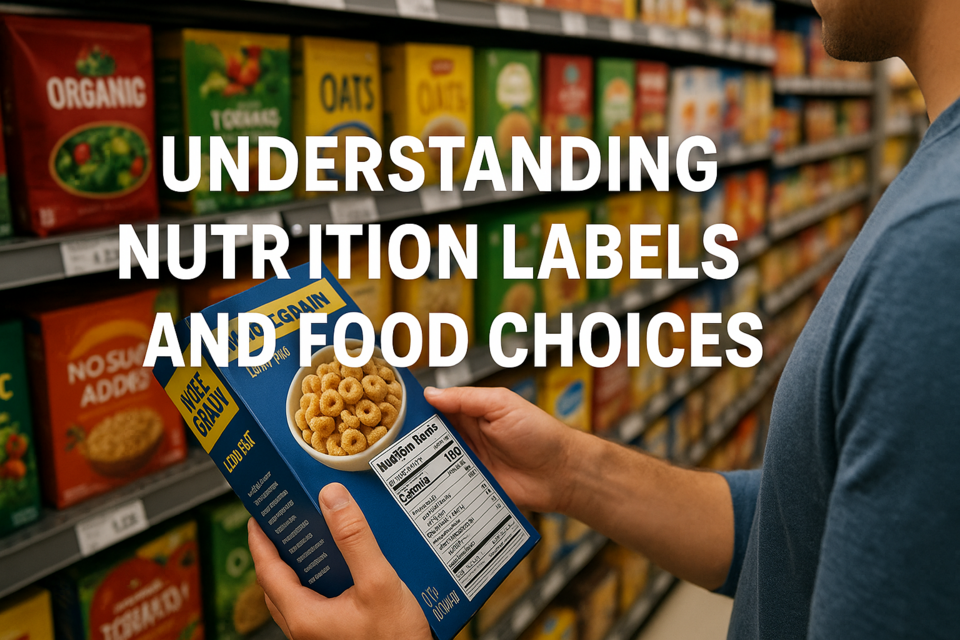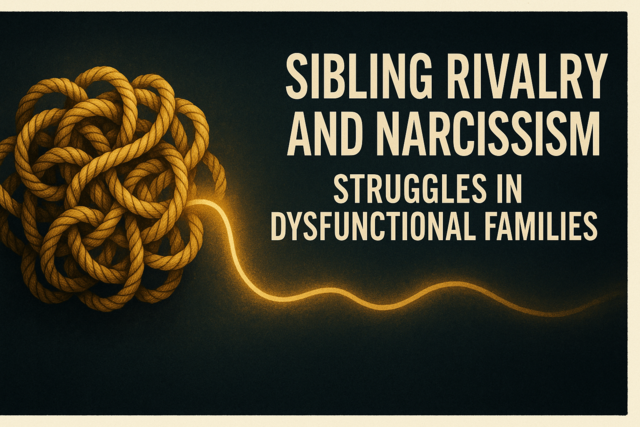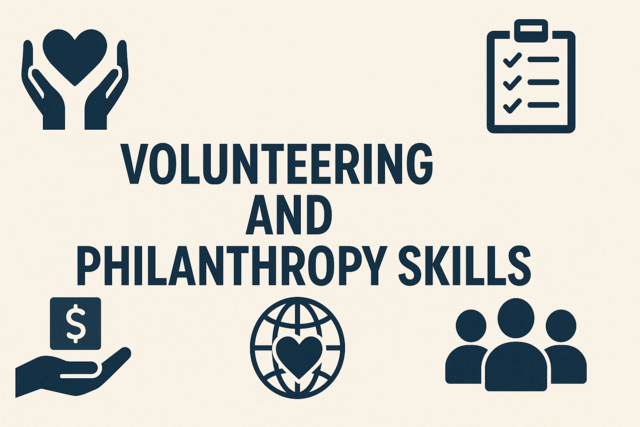Online Class: Growing Up Narcissistic — Children in Self-Centered Families

-
15Lessons
-
22Exams &
Assignments -
3Hours
average time -
0.3CEUs
Course Description
Do you remember the moments when you wondered why you felt trapped in your own family dynamics, a conscious observer of relationships that seemed to coexist under a veil of false harmony?

You are not alone, and if these questions resonate with you, your next step toward self-discovery and healing begins here. Welcome to "Growing Up Narcissistic: Children in Self-Centered Families," an enlightening psychological journey that will not only unravel the complexity of narcissistic family dynamics but equip you with the tools to transcend them.
Our course is not just an academic endeavor--it's a transformative experience crafted for those who seek to understand and heal from the intricate web of narcissistic influences. This isn't just about identifying narcissistic traits; it's about peeling back the layers to reveal the root of these behaviors, exploring their origins, and understanding their profound impact on children within these environments. You will dive deeply into the dynamics at play, including sibling rivalry and favoritism that can bolster narcissistic traits, learning how these relationships shape children's self-images and the steps necessary to reframe these perceptions.
Imagine possessing the keen insight to recognize and dismantle the manipulation and boundary violations typical in narcissistic families. Imagine a future where you, previously dependent on conditional love and approval, stand firm in self-acceptance and resilience. In this course, that future becomes accessible. Through our expertly crafted narrative, you'll grasp the immense role narcissistic parenting plays in shaping self-esteem, understanding how children develop coping mechanisms in the face of emotional neglect and manipulation.
This course uniquely segues into the often-overlooked realm of sibling dynamics, offering insight into how these relationships sustain or challenge familial narcissism. You will explore strategies to cultivate empathy and constructive connections, thereby disrupting the cycle and promoting healing. Never again feel overshadowed by siblings vying for attention in a family environment where love seems to depend on meeting unrealistic expectations.
With our course, you'll learn not just to recognize gaslighting and manipulation but to wield the power of this knowledge to protect and empower yourself. Develop robust interpersonal skills that outshine the self-centered influences of your upbringing. Our narrative guides you to navigate adult life with the clarity and capabilities needed to form healthy, meaningful relationships outside the confines of a narcissistic past.
Picture yourself free from the confines of a history that has defined you for too long. As you progress, you'll cultivate the tools to set firm and effective boundaries with narcissistic family members, transforming interactions and protecting your emotional well-being. But we don't just leave you at understanding; we guide you into recovery from trauma and toward genuine growth. By the course's end, you'll be armed with the resources and support systems essential for an empowered, liberated future.
This course isn't just about identifying what's gone wrong. It's about what can go right when you take control. You won't be left sifting through information without direction. We build a supportive community along your journey, fostering an environment of healing, where your voice is heard, and your story is respected.
The change you seek is not just possible--it's within reach. By enrolling in "Growing Up Narcissistic: Children in Self-Centered Families," you commit not only to understanding your past but reshaping your future. Say yes to empowerment, yes to healing, and yes to a life redefined by personal strength and clarity. Join us on this critical journey today, and transform your understanding of family dynamics from a source of frustration and limitation into one of discovery and liberation. Your journey starts here--are you ready to take the first step?
- Business
- Business Ethics Courses
- Harassment Prevention Courses
- Human Resources Certifications
- Management
- Aromatherapy Courses
- Caregiver Courses
- Career Development Courses
- Communications Courses
- Confidence and Self Esteem Courses
- Healing
- Human Anatomy Courses
- Medical Skills
- Health & Medicine
- Nutrition
- Marketing
- Microsoft Office Certification Courses
- Life Coaching Courses
- Self-Improvement
- Small Business Certifications
- Safety
- Writing Improvement
- Business Writing Courses
Course Lessons
Lesson 1. Exploring Narcissism Through Family Dynamics: A Profound Psychological Journey
 Review Practice Worksheet: Lesson-1-WorkSheet-28729.pdf
Review Practice Worksheet: Lesson-1-WorkSheet-28729.pdf Lesson discussions: Reasons for Taking this Course
Lesson discussions: Reasons for Taking this Course Complete: Lesson 1 Activity
Complete: Lesson 1 Activity Assessment: Lesson 1 Review Exam
Assessment: Lesson 1 Review Exam
Lesson 2. Unmasking Parental Narcissism: Traits and Impacts
 Review Practice Worksheet: Lesson-2-StudyGuide-28731.pdf
Review Practice Worksheet: Lesson-2-StudyGuide-28731.pdf Complete: Lesson 2 Activity
Complete: Lesson 2 Activity Assessment: Lesson 2 Review Exam
Assessment: Lesson 2 Review Exam
Lesson 3. Breaking Chains: Overcoming the Emotional Toll of Narcissistic Parents
 Review Practice Worksheet: Lesson-3-WorkSheet-28735.pdf
Review Practice Worksheet: Lesson-3-WorkSheet-28735.pdf Assessment: Lesson 3 Review Exam
Assessment: Lesson 3 Review Exam
Lesson 4. Reclaiming Self-Worth: Healing Emotional Scars of Narcissistic Parenting
 Review Practice Worksheet: Lesson-4-Activity-28738.pdf
Review Practice Worksheet: Lesson-4-Activity-28738.pdf Assessment: Lesson 4 Review Exam
Assessment: Lesson 4 Review Exam
Lesson 5. Entangled Loyalties: When Siblings Navigate Narcissism Together
 Review Practice Worksheet: Lesson-5-WorkSheet-28742.pdf
Review Practice Worksheet: Lesson-5-WorkSheet-28742.pdf Assessment: Lesson 5 Review Exam
Assessment: Lesson 5 Review Exam
Lesson 6. The Impact of Favoritism in Families
 Review Practice Worksheet: Lesson-6-Activity-28745.pdf
Review Practice Worksheet: Lesson-6-Activity-28745.pdf Complete: Lesson 6 Activity
Complete: Lesson 6 Activity Assessment: Lesson 6 Review Exam
Assessment: Lesson 6 Review Exam
Lesson 7. Dysfunctional Dynamics: How Narcissistic Parenting Undermines Self-Worth
 Review Practice Worksheet: Lesson-7-Downloadable-28748.pdf
Review Practice Worksheet: Lesson-7-Downloadable-28748.pdf Complete: Lesson 7 Activity
Complete: Lesson 7 Activity Assessment: Lesson 7 Review Exam
Assessment: Lesson 7 Review Exam
Lesson 8. Healing Through Awareness: Escaping the Narcissistic Cycle
 Review Practice Worksheet: Lesson-8-Activity-28752.pdf
Review Practice Worksheet: Lesson-8-Activity-28752.pdf Complete: Lesson 8 Activity
Complete: Lesson 8 Activity Assessment: Lesson 8 Review Exam
Assessment: Lesson 8 Review Exam
Lesson 9. Empowerment through Awareness: Overcoming Toxic Family Patterns
 Review Practice Worksheet: Lesson-9-HomeWork-28753.pdf
Review Practice Worksheet: Lesson-9-HomeWork-28753.pdf Complete: Lesson 9 Activity
Complete: Lesson 9 Activity Assessment: Lesson 9 Review Exam
Assessment: Lesson 9 Review Exam
Lesson 10. Decoding Gaslighting: Mastering the Art of Reality Affirmation in Family Dynamics
 Review Practice Worksheet: Lesson-10-WorkSheet-28754.pdf
Review Practice Worksheet: Lesson-10-WorkSheet-28754.pdf Complete: Lesson 10 Activity
Complete: Lesson 10 Activity Assessment: Lesson 10 Review Exam
Assessment: Lesson 10 Review Exam
Lesson 11. Boundaries and Resilience: Transforming Narcissistic Legacies
 Review Practice Worksheet: Lesson-11-HomeWork-28755.pdf
Review Practice Worksheet: Lesson-11-HomeWork-28755.pdf Assessment: Lesson 11 Review Exam
Assessment: Lesson 11 Review Exam
Lesson 12. Childhood Narcissism's Ripple Effects: Unveiling Adult Relationship Dynamics
 Review Practice Worksheet: Lesson-12-WorkSheet-28756.pdf
Review Practice Worksheet: Lesson-12-WorkSheet-28756.pdf Assessment: Lesson 12 Review Exam
Assessment: Lesson 12 Review Exam
Lesson 13. Healthy Relationship Building
 Review Practice Worksheet: Lesson-13-Downloadable-28757.pdf
Review Practice Worksheet: Lesson-13-Downloadable-28757.pdf Assessment: Lesson 13 Review Exam
Assessment: Lesson 13 Review Exam
Lesson 14. Navigating Narcissistic Family Dynamics: Strategies for Boundary Setting
 Review Practice Worksheet: Lesson-14-StudyGuide-28758.pdf
Review Practice Worksheet: Lesson-14-StudyGuide-28758.pdf Assessment: Lesson 14 Review Exam
Assessment: Lesson 14 Review Exam
Lesson 15. Building Emotional Competence and Resilience
 Review Practice Worksheet: Lesson-15-Downloadable-28759.pdf
Review Practice Worksheet: Lesson-15-Downloadable-28759.pdf Lesson discussions: End of Course Poll; Course Comments
Lesson discussions: End of Course Poll; Course Comments Assessment: Lesson 15 Review Exam
Assessment: Lesson 15 Review Exam
Learning Outcomes
- Define the key characteristics of narcissistic behavior within family dynamics, including the impact of parental and sibling influences.
- Identify the role of genetic and environmental factors in the development of narcissism as highlighted by recent research, evaluating their interplay in shaping personality traits.
- Identify and demonstrate coping strategies commonly used by children of narcissistic parents, such as humor or emotional detachment, and analyze their long-term effects.
- Identify and describe three core traits of narcissistic parenting—grandiosity, entitlement, and lack of empathy—and their impact on child development.
- Identify and demonstrate strategies to establish personal boundaries and promote self-awareness in relationships affected by narcissistic behaviors.
- Recognize and describe at least three specific narcissistic traits that negatively impact child development.
- Define the psychological impact of narcissistic parenting on children's self-worth and coping mechanisms.
- Identify strategies to address and mitigate the effects of narcissistic parenting through therapeutic interventions and personal growth techniques.
- Describe therapeutic approaches that help individuals from narcissistic families establish healthier relationship patterns and redefine self-worth independent of familial validation.
- Identify the impact of narcissistic family dynamics on sibling relationships and provide examples of rivalry and alliances.
- Demonstrate effective communication techniques to address favoritism and promote balanced family dynamics by fostering open dialogue and inclusivity among siblings and parents.
- Identify and describe the psychological impacts of favoritism on favored and unfavored siblings, including emotional responses and long-term effects.
- Demonstrate mastery of lesson content at levels of 70% or higher.
Additional Course Information

- Document Your Lifelong Learning Achievements
- Earn an Official Certificate Documenting Course Hours and CEUs
- Verify Your Certificate with a Unique Serial Number Online
- View and Share Your Certificate Online or Download/Print as PDF
- Display Your Certificate on Your Resume and Promote Your Achievements Using Social Media

Related Courses
-
 4 hours
0.4 CEUs
Home Organization and Decluttering Techniques
+ More Info
4 hours
0.4 CEUs
Home Organization and Decluttering Techniques
+ More Info
-
 5 hours
0.5 CEUs
Setting and Maintaining Personal Priorities
+ More Info
5 hours
0.5 CEUs
Setting and Maintaining Personal Priorities
+ More Info
-
 5 hours
0.5 CEUs
Understanding Nutrition Labels and Food Choices
+ More Info
5 hours
0.5 CEUs
Understanding Nutrition Labels and Food Choices
+ More Info
-
 5 hours
0.5 CEUs
Personal Hygiene and Grooming Essentials
+ More Info
5 hours
0.5 CEUs
Personal Hygiene and Grooming Essentials
+ More Info
-
 7 hours
0.7 CEUs
Adapting to Change in a Fast-Paced World
+ More Info
7 hours
0.7 CEUs
Adapting to Change in a Fast-Paced World
+ More Info
-
 4 hours
0.4 CEUs
Basic Household Maintenance Skills
+ More Info
4 hours
0.4 CEUs
Basic Household Maintenance Skills
+ More Info
-
 5 hours
0.5 CEUs
Developing a Growth Mindset
+ More Info
5 hours
0.5 CEUs
Developing a Growth Mindset
+ More Info
-
 4 hours
0.4 CEUs
Narcissistic Loops: Breaking the Cycle of Self-Absorption
+ More Info
4 hours
0.4 CEUs
Narcissistic Loops: Breaking the Cycle of Self-Absorption
+ More Info
-
 4 hours
0.4 CEUs
Leadership Skills for Personal Growth
+ More Info
4 hours
0.4 CEUs
Leadership Skills for Personal Growth
+ More Info
-
 5 hours
0.5 CEUs
Understanding and Reducing Bias
+ More Info
5 hours
0.5 CEUs
Understanding and Reducing Bias
+ More Info
-
 6 hours
0.6 CEUs
Sibling Rivalry and Narcissism: Struggles in Dysfunctional Families
+ More Info
6 hours
0.6 CEUs
Sibling Rivalry and Narcissism: Struggles in Dysfunctional Families
+ More Info
-
 7 hours
0.7 CEUs
Effective Communication Skills for Everyday Life
+ More Info
7 hours
0.7 CEUs
Effective Communication Skills for Everyday Life
+ More Info
-
 7 hours
0.7 CEUs
Healthy Lifestyle and Fitness Habits
+ More Info
7 hours
0.7 CEUs
Healthy Lifestyle and Fitness Habits
+ More Info
-
 6 hours
0.6 CEUs
The Art of Active Listening
+ More Info
6 hours
0.6 CEUs
The Art of Active Listening
+ More Info
-
 7 hours
0.7 CEUs
Self-Care and Wellness Practices
+ More Info
7 hours
0.7 CEUs
Self-Care and Wellness Practices
+ More Info
-
 6 hours
0.6 CEUs
Digital Literacy and Security
+ More Info
6 hours
0.6 CEUs
Digital Literacy and Security
+ More Info
-
 7 hours
0.7 CEUs
Entrepreneurial Mindset Development
+ More Info
7 hours
0.7 CEUs
Entrepreneurial Mindset Development
+ More Info
-
 7 hours
0.7 CEUs
Volunteering and Philanthropy Skills
+ More Info
7 hours
0.7 CEUs
Volunteering and Philanthropy Skills
+ More Info
-
 7 hours
0.7 CEUs
Enhancing Empathy and Compassion
+ More Info
7 hours
0.7 CEUs
Enhancing Empathy and Compassion
+ More Info
-
 3 hours
0.3 CEUs
Career Planning and Development
+ More Info
3 hours
0.3 CEUs
Career Planning and Development
+ More Info
-
 4 hours
0.4 CEUs
Applying Creativity in Everyday Life
+ More Info
4 hours
0.4 CEUs
Applying Creativity in Everyday Life
+ More Info
-
 4 hours
0.4 CEUs
Emergency Preparedness and Survival Skills
+ More Info
4 hours
0.4 CEUs
Emergency Preparedness and Survival Skills
+ More Info
-
 7 hours
0.7 CEUs
Building Patience and Tolerance
+ More Info
7 hours
0.7 CEUs
Building Patience and Tolerance
+ More Info
-
 6 hours
0.6 CEUs
Creating a Work-Life Balance
+ More Info
6 hours
0.6 CEUs
Creating a Work-Life Balance
+ More Info




